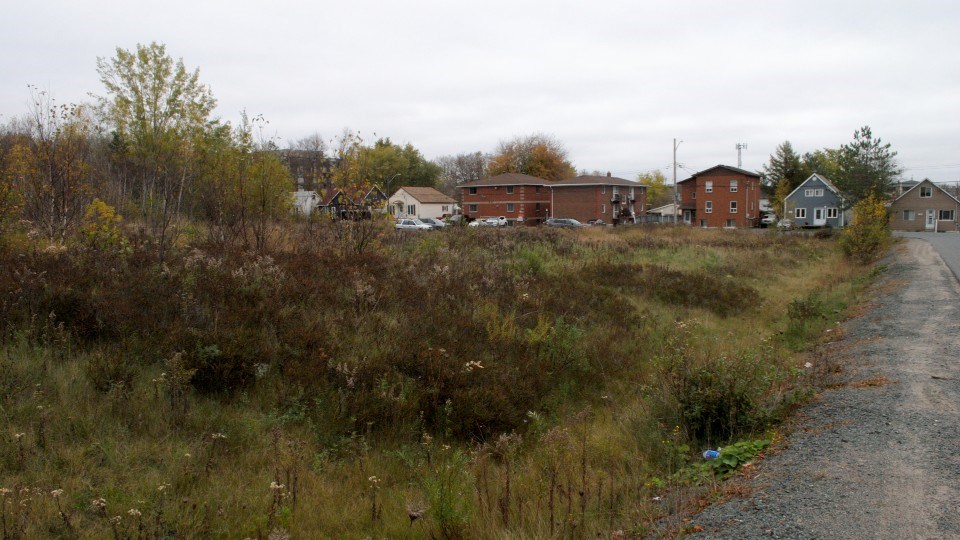A fog of financial uncertainty has clouded a proposed transitional housing complex mandated with easing the chronically homeless toward permanent community housing.
“It’s needed,” Ward 5 Coun. Robert Kirwan told Sudbury.com this week. “Nobody’s going to speak against it. The question’s going to be where are we going to find that money?”
Although there appears to be unanimous support for the project in principle, the city also faces an uphill battle in convincing residents to support a facility close to their homes.
In August, Greater Sudbury city council selected a Lorraine Street property for the project.
This decision sparked concern among neighbouring property owners who learned about the effort through media reports. The public was not consulted due to city council fast-tracking their site selection in order to meet the deadline to apply for $7.4 million in funding from the Canada Mortgage and Housing Corporation.
“It’s an ideal site, no question about it, but is it an ideal site for transitional housing or for seniors’ affordable housing?” Kirwan said of the property, located in his ward west of the Notre Dame Avenue and Lasalle Boulevard intersection in the New Sudbury neighbourhood.
The $7.4 million in federal funding is earmarked for affordable housing and isn’t contingent on the transitional housing component, community development general manager Steve Jacques said during Monday’s community services committee meeting.
At the same time, he clarified that transitional housing is a much greater need in the community than seniors housing.
“I haven’t seen a single person tell me they support the transitional housing portion,” Kirwan said of area residents and property owners, adding that he’d support locating it downtown, closer to other services residents might require.
“As ward councillor for that area, I’m representing the residents, and at this point I can no longer support that site as a site for a transitional housing project.”
Further complicating matters is the fact that although it’s considered extremely likely, the $7.4 million in funding toward the build has yet to be confirmed as cash in hand.
Funding the Assertive Community Treatment Team is another matter altogether, with the 12 full-time and four part-time staff coming at a total cost of $1.74 million per year when fully rolled out, according to a business case council debated during 2021 budget deliberations.
Members of this team were slated to include a registered nurse and three registered practical nurses, a social services worker, a vocational specialist, three addictions workers and a part-time psychiatrist and general physician, among others.
Health Sciences North has already begun onboarding staff, Jacques said, and are expected to complete training and orientation sometime next month. The team is expected to begin their work at two pilot locations and ramp up to a full complement of staff next year.
The pilot locations will serve up between 15 and 20 clients and operate until such time as the transitional housing complex opens. The number of units in the proposed complex has fluctuated, but the federal funding, if secured, requires that at least 28 units be built.
Staff costs make up the majority of the proposed facility’s $2.2-million annual operating cost, and while Kirwan said the city will likely have to eat facility costs he believes medical staff should be funded by the province.
The municipality is currently footing the bill, but staff have reached out to the province and filed a request for proposals with the Mental Health and Addictions Centre for Excellence in search of funding. There is currently an $800,000 funding gap for the program in 2022, for which city administration will prepare city council a business case to consider in 2022 budget deliberations.
Although a wealth of demands has already complicated city council’s efforts to limit a tax levy increase to no greater than three per cent, Ward 9 Coun. Deb McIntosh has already made a passionate plea for funding.
“This project is so integral to helping to solve the issues that we are experiencing right now in our city,” she said during Monday’s community services meeting, adding that mental health and addictions issues are literally killing people “underneath the shadow of city hall.”
Willing to work with the province but not wait on the province, she urged city administration to find the required funding to ensure the program becomes a reality.
As for neighbours’ opposition to the actual facility, she said she looks forward to both hearing them out during a public meeting yet to be scheduled and having city staff better inform them about what the effort is all about.
Tyler Clarke covers city hall and political affairs for Sudbury.com.
